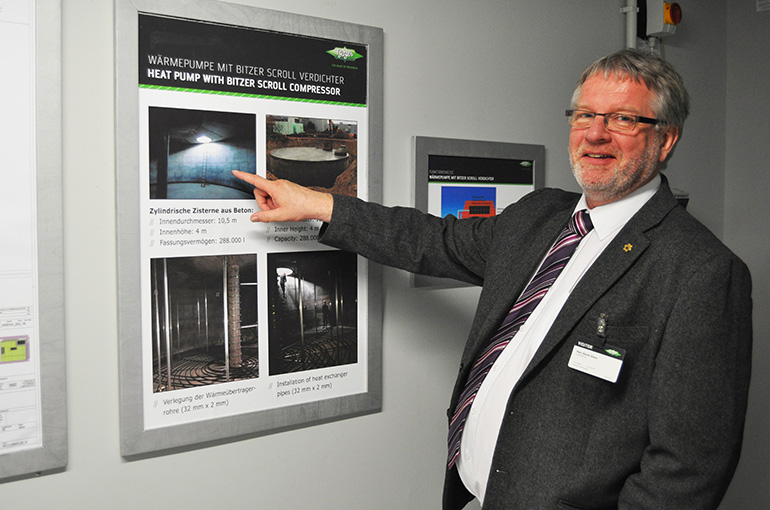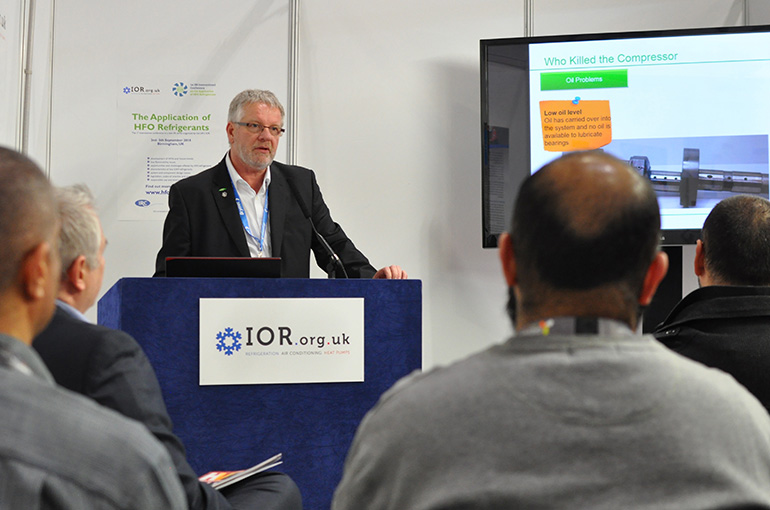05 November 2025
|
After nearly 40 years in the refrigeration and air conditioning industry, Kevin Glass is preparing to retire from his role as Managing Director of BITZER UK.
It feels a bit strange to think about stepping away from the company I’ve spent almost the entirety of my working life, but it has given me an opportunity to reflect. I never planned on having a career in refrigeration, but over time I came to understand just how vital this sector is, and how resilient it continues to be.
I started out as a young engineer in the 1980s, originally training in construction plant maintenance. When that route closed off unexpectedly, I found myself in a job installing split system air conditioning units and servicing dehumidifiers. That change of direction led me into a sales role in 1986 at APV Hall Commercial, which later become BITZER UK. And that’s where I’ve stayed ever since.
An industry in constant motion
Over the years, I’ve seen this industry change in more ways than I can count. The pace of development, the rise in environmental legislation, the shift in skills and technology.
When I first started out, things were different. The pace of change was slower, the number of refrigerants fewer and the role of the technician was far more hands-on. Back then, I only knew of one refrigerant – that was R22. But I soon got to know the likes of R12 and R502. Today, the industry is dealing with, what feels like, hundreds of refrigerants, each with different pressure ratings, characteristics and safety classifications. That shift alone shows how far we’ve come in terms of complexity and choice.
From paper and rulers to predictive maintenance
But refrigerants aren’t the only thing that’s changed. The tools we use, the way we design systems, the software we rely on, even the skills we need. Back in the day, if I was doing a compressor selection for a customer, I’d sit at a desk with printed data tables at 5° or 10° increments, a calculator and a ruler. I’d spend three or four hours manually working out the optimal setup. Today, a digital selection tool does it in seconds.
Of course, technology alone doesn't make an industry better, it’s how we use it. The advent of smart controls, remote monitoring and, more recently, AI-driven diagnostics has added layers of intelligence to systems. We can now analyse running data in real time, spot performance drift and even predict failures before they happen. In the past, refrigeration systems were reactive. They worked until they didn't. Now, with enough data, we can see the signs well in advance.
Smarter systems, tougher demands
Still, these advancements come with challenges. Systems have become more complex. You need a decent level of knowledge to install, maintain and diagnose modern systems. There was a time when experience alone could get you far. Now, you need knowledge, technical training and digital skills. And while I think our sector has done a great job adapting, we do need to keep an eye on the skills pipeline. There are brilliant young engineers coming through, but we need more of them.
Refrigerants: from R22 to natural solutions
One of the changes that stands out most to me is the shift in refrigerant regulation. When I began, we were just heading into the phase-out of CFCs. That transition felt seismic at the time. But since then, we’ve adapted to multiple changes: from HCFCs to HFCs to HFOs, and now a growing emphasis on naturals like CO₂, hydrocarbons and ammonia. Each new wave brings technical and legislative challenges, but the industry has continually risen to meet them.
I’ve always been particularly proud of the role BITZER has played during those transitions. For example, the Refrigerant Report, which was first published by BITZER’s Hermann Renz, has become like the industry's refrigerant bible. It was a neutral, reliable document and full of the kind of technical clarity we all needed when trying to make sense of changing refrigerant landscapes.

Pictured during a visit to BITZER HQ in Germany
Compressors that stood the test of time
The shift in compressor technology itself has also been significant. When I joined the business, reciprocating compressors were the norm, and semi-hermetic designs were only just starting to shake off a mixed reputation. Since then, we’ve seen scroll compressors introduced with the promise of replacing reciprocating compressors entirely. That didn’t quite happen. They carved out their niche, but reciprocating compressors proved themselves robust, adaptable and suitable across more varied applications – especially as we began working with CO₂, which scrolls can’t easily handle. Add to that the advances in screw and scroll inverter-driven units, and you start to see how diversified compressor technology has become.
Today’s pressures, tomorrow’s promise
The challenges facing the sector today are in some ways more sophisticated than those of the past. We’re navigating refrigerant bans, carbon targets, energy performance regulations, cybersecurity threats and increasing pressure to automate. But in other ways, the mission remains the same: to keep things cold, safely and efficiently. The fundamentals of thermodynamics haven’t changed.
And nor have the importance of people. Even the best technology means little without engineers who understand how to apply it. The camaraderie in this industry is great. Even among competitors, there’s a mutual respect and willingness to share knowledge.
Passing the torch
As I approach retirement, people often ask what’s next. While I don’t plan to work five days a week any more, I do hope to stay involved. There’s a lot of knowledge I’d like to pass on and give back. I know how valuable learning from other more experienced people than you can be.
Looking back, I never expected to stay in refrigeration for four decades. But then again, I never had a reason to leave. There was always something new to learn, some challenge to take on and someone willing to lend a hand. That’s what made it worthwhile. And it’s why I still believe this industry has a bright, innovative future ahead of it. As long as we keep adapting, supporting one another and staying curious the industry will continue to thrive.

Kevin’s legendary ‘Who Killed the Compressor?’ talk








